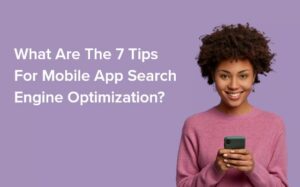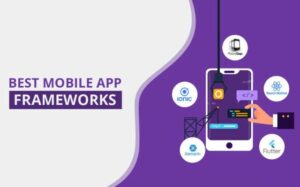In 2024; the development of on-demand food delivery apps will heavily use technology developments like machine learning and artificial intelligence to improve user experience and expedite processes. Globally; people’s busy and fast-paced lifestyles are why online meal delivery services are projected to generate $1.22 trillion in revenue by 2024.
The idea of creating an AI-powered meal delivery service has become more popular among company owners and entrepreneurs. Astute business people like yourself know that attaining success requires utilizing state-of-the-art mobile technology to strategically negotiate the competitive environment and establish a unique market niche.
In this article; we’ll examine the many uses of AI in the food app delivery space and how they influence the sector’s direction.
Advantages of AI for the Food Delivery Industry
Even though the food delivery sector has been using artificial intelligence (AI) for a while, businesses have recently begun to employ it more often and confidently;
This is due to the likelihood that artificial intelligence (AI) solutions might help companies improve their operations; increase consumer engagement; and lower operating expenses at a lower cost than traditional technologies.
Faster delivery
Many tedious jobs that could be more time-consuming and useful in the age of intelligent work; such as matching orders with drivers and filling out paperwork; will be automated by AI. You won’t have to worry about increasing your workforce or assigning them tedious work.
Enhanced client experience
Your clients won’t have to wait long for their freshly made meals anymore; nor will they have to rush to the locations due to extreme hunger. When an order is delayed; AI can occasionally make communication between a user and your company clear and exciting.
Furthermore; by facilitating clients’ understanding of what’s happening and why things are taking so long; AI may help you retain positive client connections with your business.
Improved customer relationships
AI-based technologies enable food delivery businesses to provide more engaging and unique customer experiences. Artificial intelligence (AI) powered chatbots and virtual assistants enable consumers to get prompt; effective assistance with their problems.
Furthermore; AI analyzes vast amounts of consumer data, giving companies valuable insight into their clientele’s trends, inclinations, and remarks.
Voice assistants and chatbots
Given the current craze; AI-powered voice assistants and bots have become indispensable to meal delivery applications. Their ability to respond to user inquiries; facilitate navigation, and even help with order-taking gives the app an advantage.
AI chatbots and virtual assistants may significantly increase consumer satisfaction by responding quickly.
Customization and Suggestions
Personalization is the primary use of AI in creating meal delivery apps. AI-powered algorithms examine user data such as browsing history, preferences; buying patterns, and buyer personas to provide personalized recommendations.
Food delivery applications raise customer happiness; boost retention rates, and boost revenues by providing tailored suggestions.
Demand Predictions
Food delivery apps use AI to identify trends in demand and modify personnel and inventory levels accordingly. Furthermore; machine learning algorithms examine past data, current occurrences in the area, and meteorological conditions to forecast demand accurately. This helps companies maximize their resources and cut down on food waste.

Real-World Case Studies of AI Food Delivery Apps
Yelp
Yelp elevates consumer restaurant-finding experiences using artificial intelligence. The software analyzes user reviews, ratings, and geographical data to customize suggestions. Additionally; Yelp’s AI enhances the accuracy of suggested restaurants by understanding customer preferences and behavior, creating a customized dining experience.
Moreover; Yelp’s AI powers go beyond trend-spotting user reviews to offer insightful information about possible allergies or dietary restrictions.
Samsung Food AI
The Samsung Food AI apps aim to improve eating experiences by understanding and adjusting to individual tastes.
Using artificial intelligence; the app suggests meals based on the user’s preferences, accessible ingredients, dietary constraints, and allergies. This customized strategy encourages more valued and healthful eating habits and streamlines the cooking procedure. The app’s versatility is its USP, which makes it an excellent resource for anyone with specific dietary demands.
Uber Eats
Uber Eats is the market leader in food delivery apps. It uses AI to design apps that optimize delivery routes and estimate precise time.
The application analyzes user preferences and makes customized meal recommendations using machine learning techniques. Furthermore; Uber Eats declared last year that it would include an AI-powered assistant to assist users in finding discounts and learning about various meal selections.
Swiggy
Without question; Swiggy’s application of AI has made an unmatched consumer experience possible. Additionally; Swiggy is creating solutions powered by generative AI, such as Copilot for X, for its network of delivery and restaurant partners.
Account managers will be better able to use demand forecasts and route planning to improve delivery logistics and have intelligent interactions with restaurant partners.
Challenges and Considerations
Technical Challenges in AI Integration
A number of technological challenges are involved in integrating AI into meal delivery systems. First; a great deal of knowledge and resources are needed to create complex algorithms that can precisely estimate delivery times, optimize routes, and suggest meals. For these algorithms to produce precise and helpful insights, they must be able to analyze enormous volumes of data in real-time.
Ensuring the scalability of AI technologies is another technological barrier. An AI system for a food delivery service has to be able to manage a growing amount of data and transactions without sacrificing functionality as the app’s user base expands. Continuous optimization and a strong infrastructure are frequently needed for this.
Ethical Considerations and Data Privacy Issues
The incorporation of AI raises important questions about data protection and ethics. For AI systems to work well; user data is essential. Personal data, preferences, and behavioral patterns are included in this. It’s critical to make sure that this data is gathered, handled, and kept responsibly.
User consent is one of the main issues. Users need to be made fully aware of the types of data being gathered and their intended uses. If they so desire; they ought to be able to refuse having their data collected. Building confidence and avoiding any legal ramifications are two benefits of transparent data processing procedures.
Strategies to Overcome These Challenges
- A staged approach might be useful in addressing the technological problems associated with AI integration. Prior to a full-scale launch; begin with pilot projects to evaluate and improve AI technologies. This makes it possible to find and fix such problems early on in the development process.
- It’s also essential to invest in scalable infrastructure. Cloud-based solutions can provide the scalability and flexibility required to accommodate an expanding user base. As the program grows; speed will be maintained with regular upgrades and improvements of the AI system.
- Establishing strong data governance principles is essential for ethical concerns and data privacy issues. Make sure that the procedures used for collecting data are open and in compliance with laws like the CCPA and GDPR. High standards of data security as well as privacy may be upheld with the support of frequent audits and user input.Over time; adding feedback loops where users may report problems or errors will also help the system become more accurate and fair.
Conclusion
A committed team of talented developers will surely be crucial in creating top-notch delivery app development solutions, regardless of your future features or apps—such as machine learning for food delivery.
We recommend looking for developers with experience who have worked on similar projects in similar industries, as they will bring proven expertise that could make for even greater success and efficiency in implementation. Developers with experience completing similar projects will likely make yours even more effective and successful.
Our company uses a variety of tactics to motivate its developers to work in particular sectors and gain expertise and new talents; one such tactic is the examination of case studies to support our assertions. For food and beverage app development services and solutions, please feel free to contact us.











